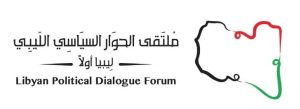By Sami Zaptia.
London, 23 March 2021:
UNSMIL announced today that it will reconvene a virtual meeting of the selected 74-member Libyan Political Dialogue Forum (LPDF) next Friday 26 March.
It stated that the meeting will focus on the latest political developments in Libya and the way forward in the implementation of the LPDF Roadmap.
UNSMIL head Jan Kubis will also update the LPDF on his briefing to the Security Council tomorrow evening.
Analysis
UNSMIL overlooking LPDF?
There has been concern that the international community/UNSMIL are now overlooking the role of the LPDF and its Legal and Constitutional Committees – now that the unified Libyan government – the Government of National Unity (GNU) – has been selected, endorsed and sworn-in by parliament.
Constitutional arrangements
There are particularly concerns over lukewarm efforts to make the necessary constitutional arrangements to adopt the new 3+1 formula of three members of the Presidency Council and a separate prime minister. Previously, the Presidency Council had nine members and the head of the Presidency Council, Faiez Serraj, also held the position of prime minister.
The new Mohamed Menfi-led Presidency Council and prime minister Abd Alhamid Aldabaiba need to be fortified legally through a constitutional amendment agreed by the High State Council (HSC) and parliament, the House of Representatives (HoR). The 2015 Skhirat Libyan Political Agreement prescribes that any constitutional amendment must be agreed jointly between the HSC and the HoR.
Referendum on the constitution
There are fears that proactive or inherent inertia and the shortage of time may mean that a referendum on the Libyan constitution is not held prior to elections. This would mean that if elections are indeed held by 24 December, it would not be constitutionally based. All this will mean is that Libya will elect yet another interim government. Such a government would have limited legitimacy and authority and hence limited ability to be effective in delivering services. The LPDF Roadmap prescribes that the 24 December elections be constitutionally based.
Parliamentary and presidential elections?
There is a fear that the current status quo powers are either proactively or quietly conspiring to avoid the holding of popular presidential elections. The status quo powers in the form of the political elite and members of parliament fear that they will lose political leverage and power to the electorate if a president is elected directly by the public. This would put them on the spot with regards to effectiveness and accountability. They would also lose the ability to have more input in selecting the prime minister and his government – to which they hope to appoint friends, allies and family members.
Prolonging GNU interim term?
There are fears of conspiracy by stakeholders to prolong the current interim phase from which they are benefiting. It is feared that GNU ministers may like to remain in office beyond December this year.
Equally, the HoR and HSC members have enjoyed good remuneration packages since 2014 and 2015 respectively. Elections will mean the majority of them will most likely be out of a job.
It is for this reason that analysts hope UNSMIL will not take its foot off the Libya accelerator, will continue to give the LPDF a prominent role and that Jan Kubis will be as determined and effective as his predecessor Stephanie Williams in pushing the Libya process forward.







